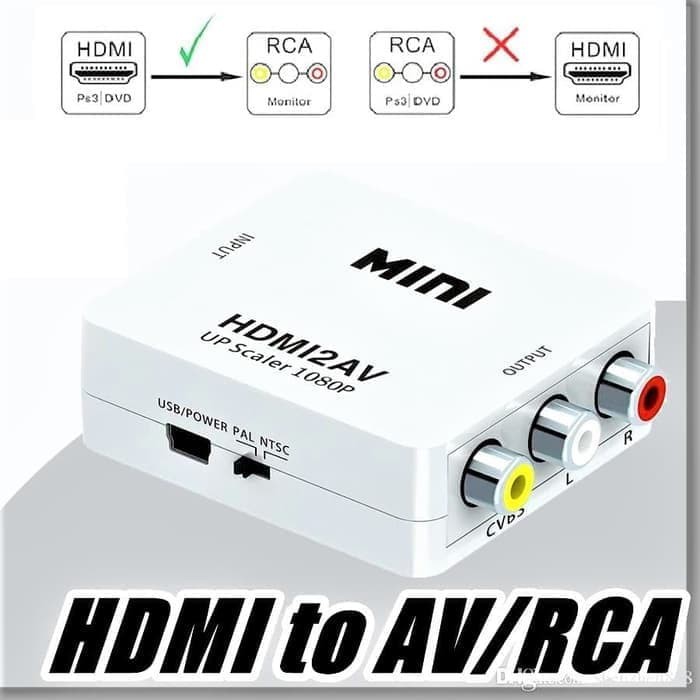

My philosophy is that I'd always much rather pay a higher cost up-front cost than a never-ending fee over the long term. And I don't want to pay for a solution I'm likely to have to replace next year.


I am cheap, but not unrealistic: I am usually willing to spend money on hardware to solve the problem, assuming that it is economical compared to the "tithe" that I expect the cable company is going to make me pay over the long run. AT&T offers a competing service, but the Internet will not be as fast and in the long run I doubt the cost would be any better. Satellite service in the long run doesn't seem any cheaper, and they don?t provide the broadband so that's not a solution.
Vcr to converter box download#
(Guess it's just as well I never got around to that) a "Freebo" would have the advantage of being able to download an stream Internet content, which I do believe is the future to some degree. The problem is now that I don't see any hardware that is capable of decoding the digital content off the cable, so that project now appears dead.

And of course, I resist this because I resent the idea of having to pay more to replace something that worked just fine before they decided to "upgrade" the system, supposedly for my benefit.įor years, I'd been planning on building a "Freebo" DVR out of spare parts, but have never gotten around to it. Of course, our wonderful cable provider, Comcast, will be happy to provide a solution to this problem by renting me their DVRs for all my TVs for additional fees. In other words, the VCRs have been rendered nearly useless.
Vcr to converter box manual#
Of course, this will preclude the ability to be able to record one channel and watch another, and will also make it impossible to record programs on different channels over time without manual attention. The only way to do so will be to wire in the VCRs behind the converter boxes, and then manually set the correct channel on the converter for the next program to be recorded. The problem is that this will cripple my ability to record with the VCRs. These converters are bare-boned they don't even have the "guide" that the other one has, and they only have RF output to channel 3 or 4. They have been gracious enough to provide, for free, additional digital converters for my office and bedroom TVs. But the real agenda is all about eventually extracting an additional "entertainment tithe" out of us. Of course, this is with the stated (and somewhat true) purpose of feeing up bandwidth for additional digital services. Where I live, it's mostly shallow rolling hills just high enough to render the higher frequencies useless unless you've got a 100-foot mast.Īfter years of telling everyone that nothing will change for their customers after the big analog-to-digital conversion, our wonderful cable provider, Comcast, will soon be discontinuing almost all analog transmission on the cable. I do have a box to get over-the-air HDTV, but haven't bothered to mess with it. Yeah, this is all primitive, but it worked well. In the bedroom, we have just a TV, but we don't watch recorded material there. In my office, it's all analog, with another VCR, on which I usually record programs that I want to watch, but my wife will have no interest in. (Poor-mans time-shifting) Most television we watch is recorded on the VCRs to be watched at our convenience. On that TV, we also have a DVD player and a 2 old-fashioned VHS VCRs which we record programs to watch later.
Vcr to converter box plus#
For the last year or so, we've had a digital converter in the family room which gets all the basic channels plus a few extra as well as the "on-demand" service, which we rarely use. If I want to see a movie, I usually rent a DVD at the MovieCube or the Redbox at for $1. I'm on basic cable, which I also use for my broadband Internet.


 0 kommentar(er)
0 kommentar(er)
